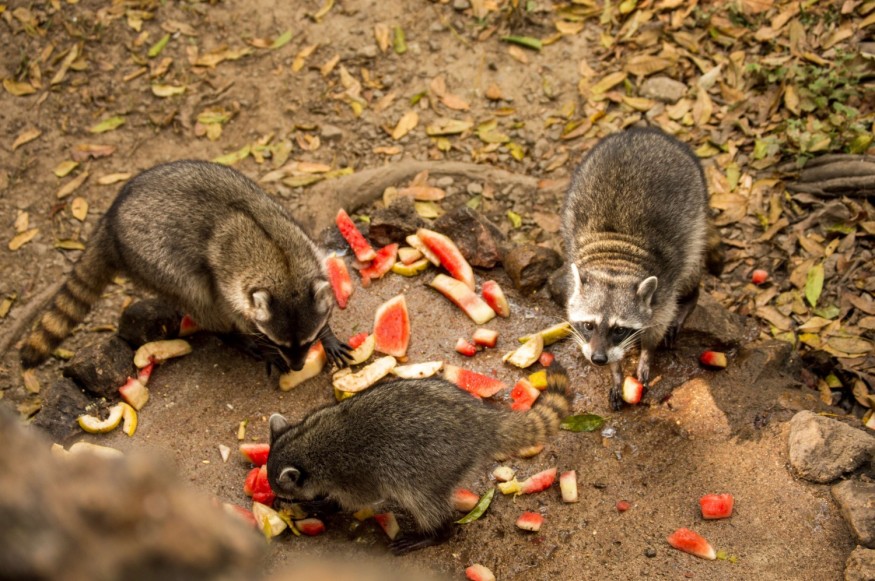Scavengers, like raccoons and vultures, mostly consume decaying biomass, such as meat or plant material. According to National Geographic, most of them are carnivores who hunt and kill their prey or consume animals that have died due to natural causes or were killed by another carnivore.
New research from the University of Georgia revealed that scavengers could also be selective in their diet. When presented with different carcasses, they found that some preferred to eat herbivores while others picked the carcasses of carnivores. These findings provide new insight into how nutrients are cycled throughout food webs.

Picky Scavengers Selecting Their Meal
In the study titled "Trophic Interactions at Avian Carcasses: Do Scavengers Feed On Vulture Carrion?," published in Food Webs, researchers described how they set up remote cameras and placed various avian carcasses of different trophic levels on the heavily forested Savannah River Site near Aiken South Carolina to observe how scavengers behave during mealtime.
Miranda Butler-Valverde, the lead investigator on the study, reviewed more than 20,000 images of avian and mammal scavengers while selecting their meals. According to Newswise, she placed 40 herbivore carcasses, like chickens and ducks and 20 carcasses of black vultures, and 19 carcasses of turkey on the landscape.
The motion sensors triggered the cameras to take photos every five minutes for the course of one month to capture scavengers, like crows, coyotes, bald eagles, and wild pigs feeding on the carcasses, especially those of the ducks and chickens.
The team found that the scavengers preferred the carcasses of mallard ducks and chickens when carcasses of turkey and black vultures were also present on the menu. Coyotes and Virginia opossums ate only 10 of the 39 vulture carcasses and a few other scavengers partially fed on them.
What Does This Say About Food Webs?
Butler-Valverde, a wildlife technician at Santa Fe National Forest in New Mexico, said that the experiment shows how nutrients cycle through food webs.
In a similar article in Phys.org, she explained that vulture carcasses that were not scavenged or partially scavenged were on the landscape for a longer time, which means that microbes and invertebrates might have already taken advantage of reduced competition and lack of disturbance. After which, the carcasses decompose and nutrients are most likely deposited into the soil and plant communities in the vicinity.
Moreover, the study shows that vertebrates at the higher trophic level of the food chain arrived at the buffet earlier and obtained nutrients from the carcasses. However, the vulture carcasses left were consumed by microbes and invertebrates to balance the food web where everyone gets something to eat.
ALSO READ : Allosaurus Not a Top Carnivorous Predator But a Scavenger During Late Jurassic, Study Confirms
Scavengers Trying to Avoid Diseases
The actions of high trophic scavengers may look as if they are choosing a tastier meal. However, researchers believe there is more reason for it than just the palates or taste buds at play.
Study co-author James Beasley said that scavengers could be avoiding disease risks. He said that by scavenging similar species, they are more likely to be exposed to pathogens, so they tend to scavenge other carnivores to reduce their risk.
The diet of the animals they scavenge must have influenced their choice. For instance, chickens and mallard ducks are herbivores, but vultures primarily feed on dead animals or carcasses, which means the nutritional values greatly differ.
The research supports previous findings that fewer vertebrates scavenge high trophic levels and emphasizes the importance of studying the scavenging ecology to pinpoint patterns and implications.
RELATED ARTICLE : Tasmanian Devils Are The Only Scavengers Who Has a Picky Diet, What Is Their Favorite Food?
Check out more news and information on Animals in Science Times.
© 2025 ScienceTimes.com All rights reserved. Do not reproduce without permission. The window to the world of Science Times.












